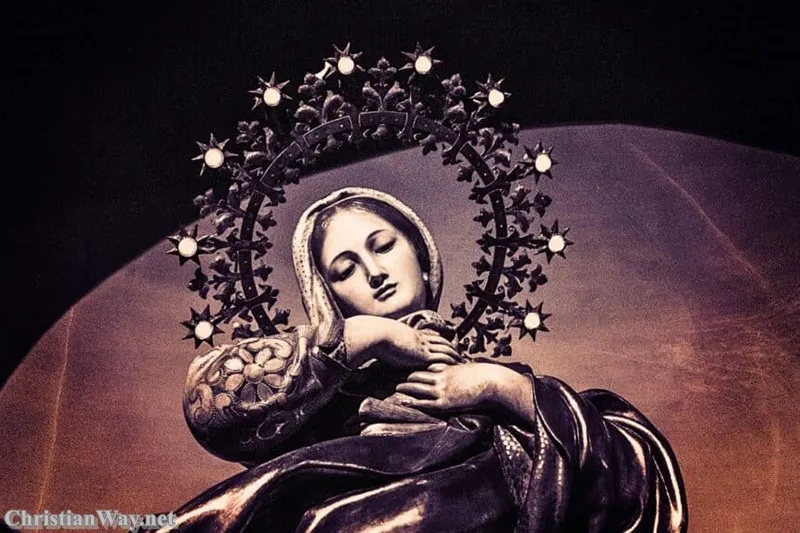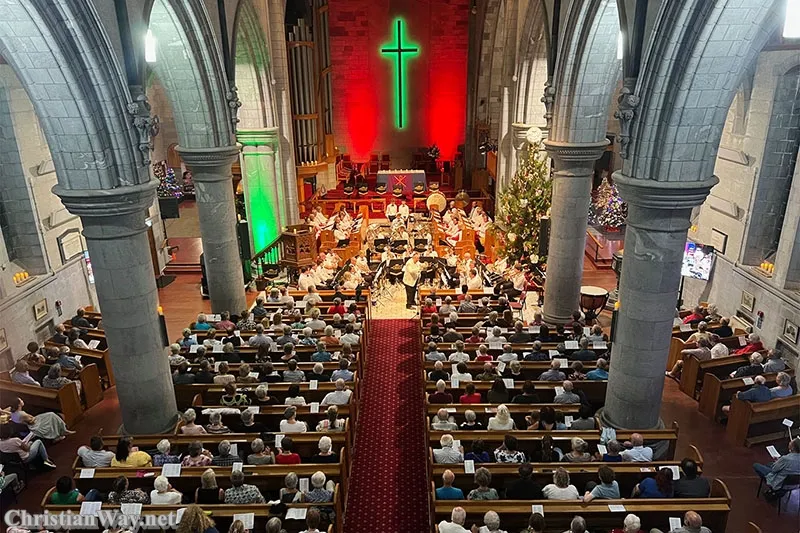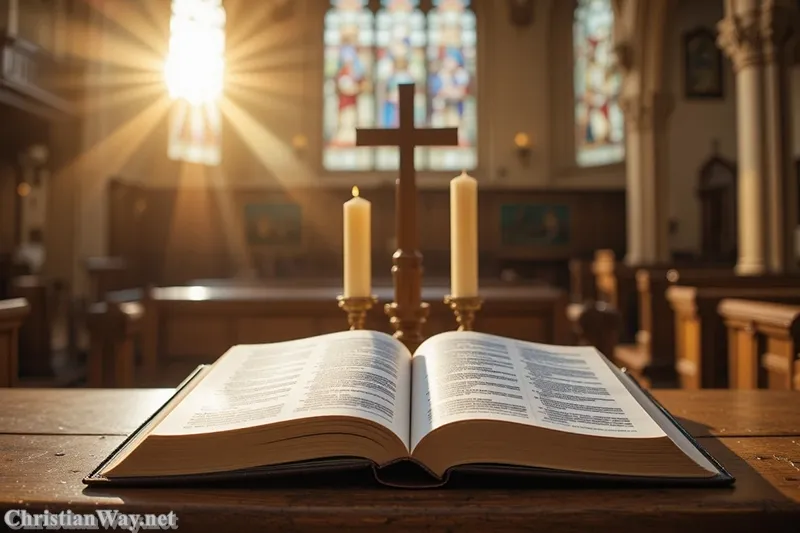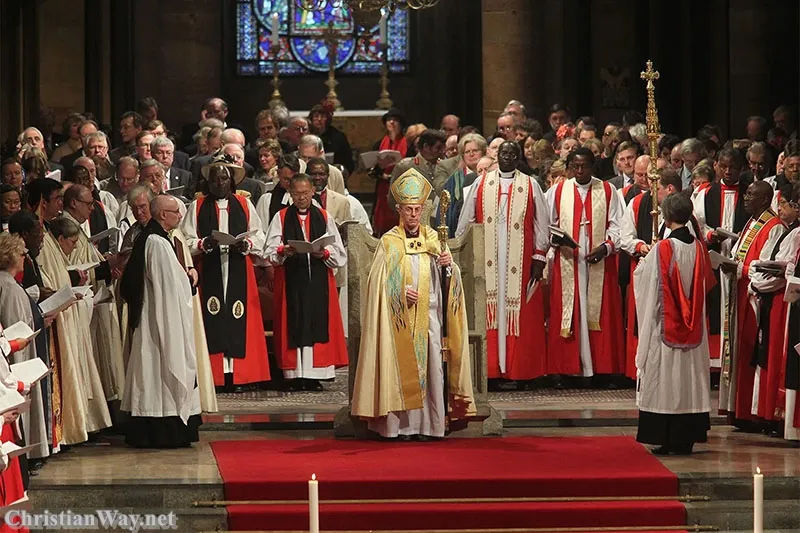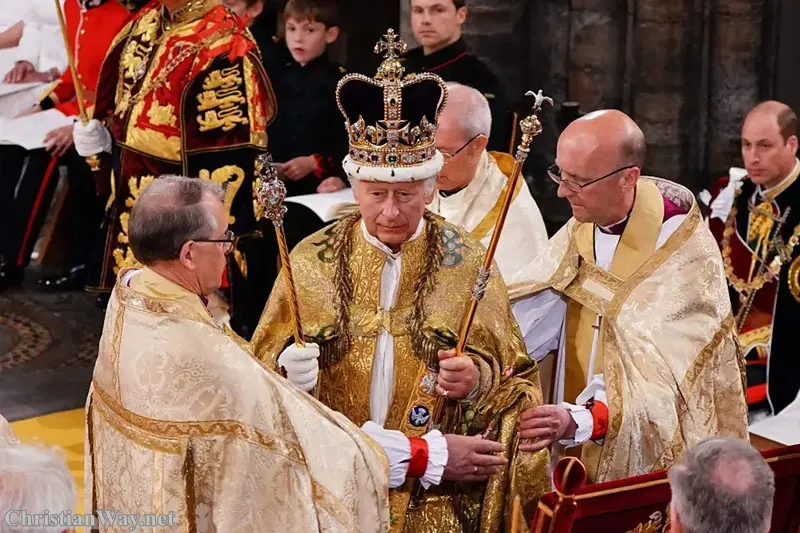Dear friends in Christ,
Every branch of the Christian family tree tells a story — a story of love, struggle, renewal, and grace. The Anglican Tradition is one such story, born in the soil of England but spread across the world like a tree whose branches reach into every culture and heart that seeks to worship God in spirit and in truth. It stands as a bridge — between the ancient and the modern, between Rome and Geneva, between Catholic order and Protestant freedom.
The Anglican way of faith invites us not into rigidity but into a living balance, where Scripture, reason, and tradition meet in harmony. It is not simply a denomination, but a way of being Christian — thoughtful, prayerful, and rooted in the life of the Church through the ages.
In this reflection, we shall journey through the origins, principles, and enduring gifts of the Anglican Tradition — not as historians, but as pilgrims. For the Anglican heritage, at its heart, is about pilgrimage: walking together with Christ through the life of prayer, the Word of God, and the sacramental life of the Church.
The Origins of the Anglican Tradition
The Anglican Tradition began within the English Reformation of the sixteenth century, but its soul reaches much deeper — back into the early centuries of the undivided Church. Before Henry VIII’s political separation from Rome, the English Church already had a rich spiritual heritage. Monks prayed in quiet abbeys, bishops guided the faithful, and saints like Bede, Cuthbert, and Anselm bore witness to Christ in their own time.
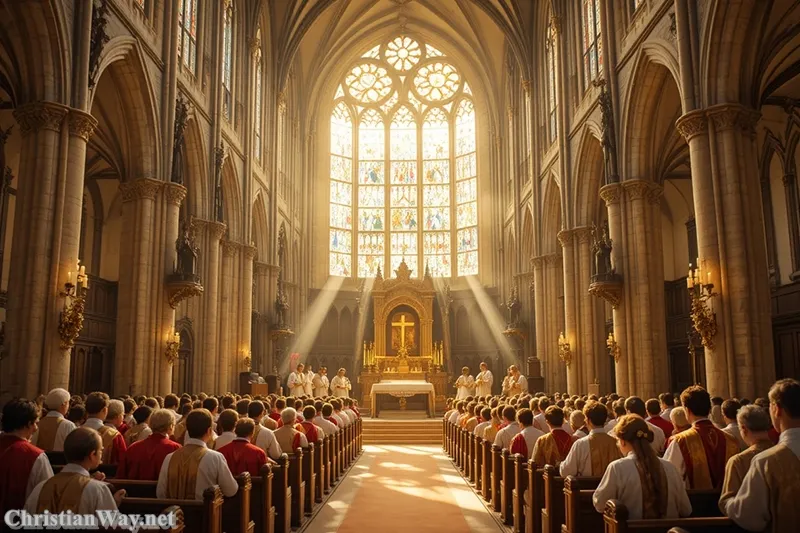
When the Reformation came, it did not erase this heritage but sought to renew it — to bring the Gospel closer to the hearts of ordinary believers and to reform the Church according to the Word of God. The result was not a new Church, but a reformed Catholic Church — one that retained the apostolic succession, the creeds, and the sacraments, while also embracing the authority of Scripture as supreme in matters of faith.
The first Book of Common Prayer (1549) expressed this renewed spirit. Crafted in the beautiful language of Thomas Cranmer, it united the nation in common worship. Its prayers still echo in Anglican churches today, reminding worshippers that holiness begins not in division but in shared devotion.
The Anglican Balance: Scripture, Tradition, and Reason
One of the hallmarks of Anglicanism is its threefold cord of faith — Scripture, tradition, and reason. These are not competing authorities but companions on the journey of truth.
Scripture — The Foundation of Faith
At the center of Anglican life stands the Holy Scripture. Anglicans affirm that the Bible contains all things necessary for salvation. Every liturgy, hymn, and homily is steeped in its language. The Scriptures are not read merely as ancient texts, but as the living Word of God that speaks into the heart of every generation.
As St. Paul wrote, “All Scripture is inspired by God and useful for teaching, for reproof, for correction, and for training in righteousness” (2 Timothy 3:16). The Anglican Tradition calls believers to read, mark, learn, and inwardly digest the Word — to let it shape their hearts and daily lives.
Tradition — The Wisdom of the Church
Yet Scripture is never read in isolation. The Anglican heart beats with the rhythm of tradition — the lived memory of the Church, stretching back to the apostles. The creeds, the sacraments, the ancient prayers, and the lives of the saints all remind Anglicans that faith is communal, not individualistic.
The Anglican Church continues to celebrate the Eucharist, baptize in the name of the Holy Trinity, and confess the Nicene and Apostles’ Creeds. These are not relics of the past but vessels of grace through which the faith of the ages continues to breathe.
Reason — The Gift of Understanding
Reason, in Anglican thought, is not the enemy of faith but its ally. It allows believers to discern, to interpret, and to engage with the world responsibly. Reason is what keeps the Anglican Tradition open — willing to listen, to question, and to grow, while remaining anchored in the eternal truths of God.
This triad — Scripture, tradition, and reason — forms what theologians call the Anglican “via media”, the “middle way.” It is not compromise, but completeness: a way that refuses to abandon either the spiritual depth of the Catholic faith or the reforming zeal of the Protestant witness.
The Book of Common Prayer: The Heart of Anglican Worship
Perhaps nothing defines the Anglican Tradition more beautifully than The Book of Common Prayer (BCP). First published in 1549 and revised many times since, the BCP embodies the Anglican spirit of worship that is at once reverent, poetic, and accessible.
Its collects and liturgies express profound theology in words simple enough for any believer to pray:
“Almighty God, unto whom all hearts are open, all desires known, and from whom no secrets are hid…”
Through the Prayer Book, Anglicans learn not only what to believe but how to pray. Morning and Evening Prayer, the Holy Eucharist, the rites of Baptism and Marriage — all reveal a spirituality that is both contemplative and communal. It is a liturgy that invites the soul to meet God not in emotion alone, but in sacred rhythm and holy order.
The genius of Anglican worship lies in its capacity to embrace both beauty and simplicity. It honors the altar with reverence, the Word with attention, and the congregation with participation. In every parish — from a candlelit chapel in England to a cathedral in Africa — the same prayer book shapes hearts to love God more deeply and to love one’s neighbor more faithfully.
Anglicanism and the Sacramental Life
The Anglican Church cherishes the sacramental life — the visible signs of invisible grace. It recognizes two “great sacraments” instituted by Christ Himself: Baptism and the Holy Eucharist, and five other sacramental rites — confirmation, penance, matrimony, holy orders, and anointing of the sick — as means of grace and blessing.
In Baptism, the believer is made a member of Christ’s Body; in the Eucharist, the believer is nourished by His Body and Blood. These are not mere symbols but mysteries of communion, where heaven touches earth and the soul is refreshed by divine life.
The Eucharist, in particular, lies at the center of Anglican devotion. Anglicans hold a reverent understanding of Christ’s Real Presence, while allowing room for holy mystery. It is a meal of thanksgiving, a sacrifice of praise, and a foretaste of the heavenly banquet.
The Anglican Communion: A Global Family
Today, the Anglican Communion spans over 165 countries and unites nearly 85 million Christians. It is a fellowship of churches that share a common heritage of faith and worship, while allowing for local expression and cultural diversity.
Each national church — from the Church of England to the Episcopal Church in the United States, from the Church of Nigeria to the Anglican Church of Kenya — governs itself yet remains bound in spiritual communion through shared faith, prayer, and mission.
The Archbishop of Canterbury serves as a symbol of unity, not as a pope, but as a spiritual center of fellowship. The Communion’s unity lies not in uniformity but in mutual love and faithfulness to Christ. As St. Paul wrote, “There is one Body and one Spirit… one Lord, one faith, one baptism” (Ephesians 4:4–5).
The Anglican Ethos: Faith Seeking Understanding
The Anglican Tradition has always valued intellectual depth and spiritual humility. Its theologians — from Richard Hooker to C.S. Lewis, from John Henry Newman to N.T. Wright — have shaped Christian thought with wisdom that bridges faith and reason.
Anglicanism invites believers to think deeply, pray sincerely, and serve compassionately. It honors doubt as a doorway to deeper faith and encourages dialogue over division. Its saints, scholars, and pastors have contributed not only to theology but to literature, music, education, and social reform.
From the hymns of Charles Wesley to the sermons of John Donne, from the abolitionism of William Wilberforce to the spiritual writings of Evelyn Underhill, the Anglican Tradition has carried Christ’s light into every corner of human experience.
Living the Anglican Way Today
To live the Anglican way today is to walk a path both ancient and new. It is to stand at the crossroads of history and hope — holding fast to the creeds, cherishing the sacraments, and engaging the modern world with humility and faith.
Anglicans are called to embody a generous orthodoxy: firm in truth, yet open-hearted; rooted in Scripture, yet sensitive to the Spirit’s leading in the present age. In a world often divided by ideology and pride, the Anglican witness is one of grace-filled balance — a faith that thinks, prays, and loves in equal measure.
Reflect and Pray
The Anglican Tradition, at its best, is not about institutions or ceremonies, but about Christ Himself — encountered in Word, sacrament, and community. It teaches us to listen, to pray, and to live in gratitude.
May we, in whatever Christian family we belong, learn from this way of faith: to hold truth and love together, to pray with beauty and sincerity, and to seek unity without fear of difference.
Let us pray:
Lord Jesus Christ,
You have called Your Church to be one, holy, catholic, and apostolic.
Grant that we, following the Anglican way of faith, may walk humbly in Your truth,
cherish the gifts of Word and Sacrament,
and bear witness to Your love in the world.
Make us instruments of peace and grace,
that Your Kingdom may come on earth as in heaven.
Amen.
— Fr. John Matthew, for Christian Way
